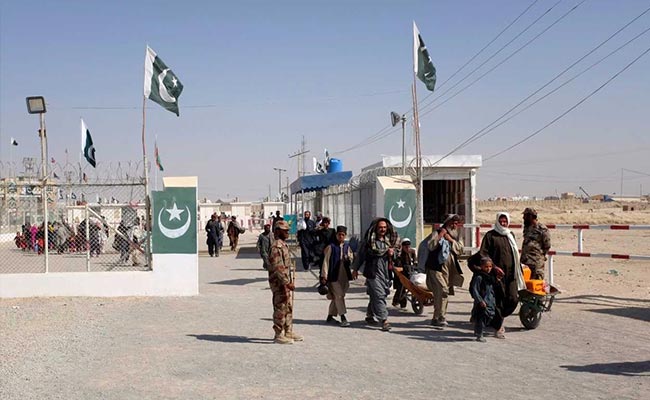At a regular news briefing in Beijing, Zhao said the alliance âseriously undermined regional peace and stability, aggravated the arms race and hurt international nonproliferation efforts.â
He accused the United States and Britain of âdouble standardsâ and using nuclear exports as a âtool in their geopolitical games,â as he admonished them to âabandon their outdated Cold War mentalityâ â a common refrain from ministry spokespeople.
âOtherwise, they will only shoot themselves in the foot,â he added.
While Biden, British Prime Minister Boris Johnson and Australian Prime Minister Scott Morrison did not mention China in their remarks on Wednesday, the pact is widely seen as a response to Chinaâs expanding economic power, military reach and diplomatic influence. China is believed to have six nuclear attack submarines, with plans to increase the fleet in the next decade.
âBeijing will view this as part of the Biden administrationâs effort to build coalitions to hem China in and contain its rising power,â said Bonnie Glaser, director of the German Marshall Fundâs Asia program.
The agreement, which comes soon after the withdrawal of U.S. troops from Afghanistan, is part of broader effort by Biden to focus on the Indo-Pacific region and recruit allies to counter what his administration sees as an increasingly militant and authoritarian China.
Under the Biden administration, Washington and Beijing have clashed over human rights, trade, the South China Sea and Taiwan. As the United States attempts to engage China on climate pledges ahead of a key international summit in November, there have been few signs of progress. A 90-minute call between Chinese President Xi Jinping and Biden last week resulted in few specifics. During the call, Xi said U.S. policies have caused âserious difficultiesâ in the relationship, according to the official Xinhua News Agency.
Glaser said she expects Beijing to exert more pressure on Australia and the United Kingdom to âdeter others from banding togetherâ against China. âIn Chinese, thatâs âkilling the chicken to scare the monkey,â â she said.
On Thursday, the state-run Global Times described the United States as âlosing its mind trying to rally its allies against Chinaâ and accused Australia of becoming a ârunning dogâ of Washington. China and Australia have been locked in a trade war for more than a year as relations have deteriorated.
âSince Australia has become an anti-China spearhead, the country should prepare for the worst,â the editorial warned.
Others say Beijing has little recourse to pressure those involved in the alliance. âThere is not a lot they can do in material terms because the relationship with the U.S. is already at rock bottom. They have already imposed sanctions on Australia and threatened it so much that their bullying tactics have proven to be counterproductive,â said Christopher Hughes, a professor of international relations at the London School of Economics and Political Science, focusing on Chinese foreign policy.
According to Hughes, while the new alliance is likely to fan already high anti-Western nationalism in China, it could also âadd fuel to growing concerns inside Chinaâ over Xiâs expanding crackdown on the private sector and society and a weakening economy.
âIf they are wise, they will realize that this alignment is the result of their own assertiveness and change tack,â he said. â[China] does not have a lot of cards to play.â
.png)











 English (United States) ·
English (United States) ·  Turkish (Turkey) ·
Turkish (Turkey) ·